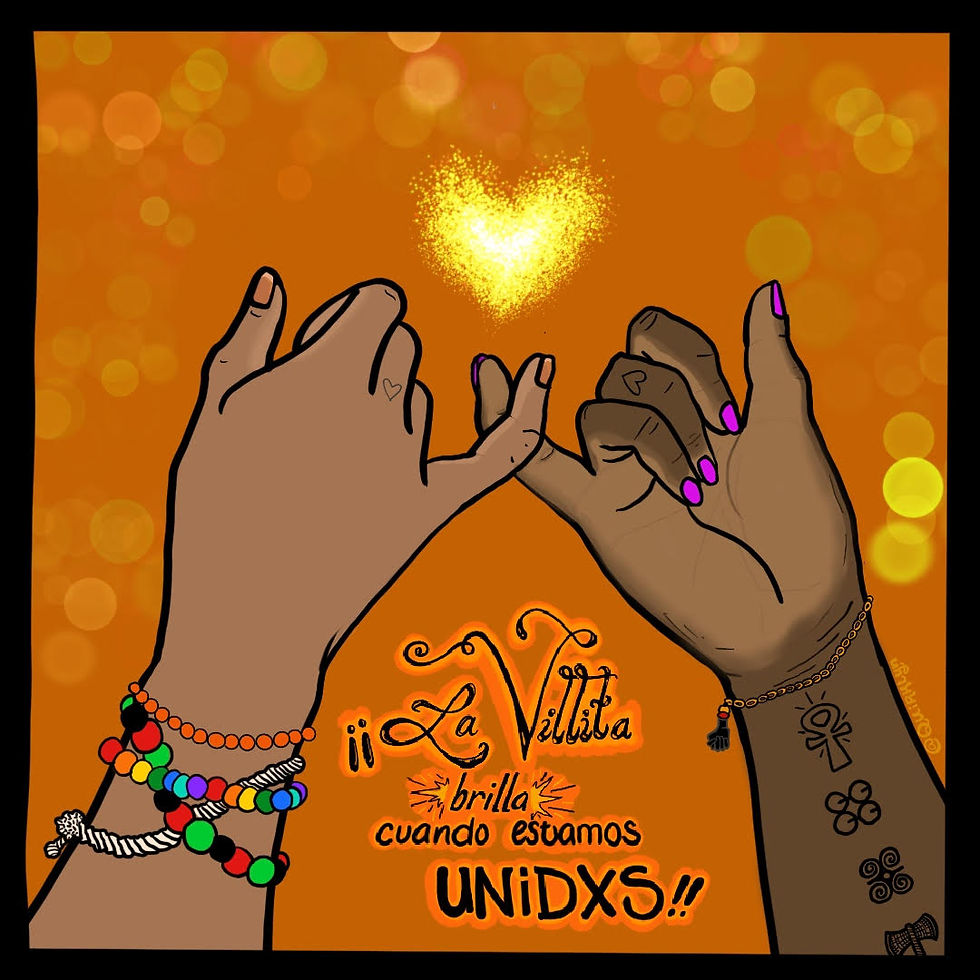Imagine Better, Then Execute It
- Yasmin Zacaria Mikhaiel
- Jun 14, 2020
- 4 min read

Part of the Invisible Diaries series:
Week 10 / Day 6
Over the span of ten days, in a team of two, I’ve been producing the emergency teach-in series Liberation in Black and Tan, featuring six hour-long sessions for three hundred international participants. Never have I ever done soooo much admin and emailing in my life. It runs June 13th and 14th, livestreaming from Zoom to Facebook (where it’ll remain accessible). If I may indulge, here are the topics:
History of Black and Brown Solidarity
Abridged History Anti-Blackness in The Hemispheric Americas and Latinx Communities
Mexicans in the Middle: Racial Formation and Latinos in the U.S.
From Antagonism to Co-Imagining: Understanding Black & Brown Relations
Roundtable on Radical History of Black and Brown Gangs
Hacking Rhetorics & Logics: Dismantling Critiques of Protests, Riots & Other Righteous Expression
I can’t help but imagine what someone looking back at this session listing would think about what’s happening now. This breadth of history, the complexity, the urgency. Producing opportunities for historical reflection and knowledge-sharing is keeping me accountable. Yet, I also slip into guilt here. This work is hard, and I am tired.
As a young person, an early-career XYZ, the hardest conversations I have surround capacity and compensation. In Covid times, I’ve felt an expectation (more generally) that “we” have more time on our hands – but I’m constantly butting up against this, because what has actually increased is the number of hands on my time. Our attention is divided in new ways – and I don’t even have kids or a partner!
What is a blessing with The Hoodoisie, at least, is that ‘the compensation conversation’ affirmed what I already knew to be true: I am worth it. I am of value. When the floor was opened to talk about it, I jumped. These past couple of weeks, I’ve been really struggling to do my job in the weekly hours we had allotted. Rattling off my responsibilities as editorial producer, I listed tracking contacts, booking guests, writing scripts, researching, following up, coordinating meetings, pitching episodes, etc… I was sharing, really, that I didn’t know what I could have done differently to be more efficient. But I was stopped.
“Yasmin, don’t apologize for doing the labor it takes to do your job. Mark the hours and we’ll pay you.”
I. Was. Baffled.
And then, my hours were bumped through the end of my contract.
What.
In Covid times? Yes.
To take a step back: resisting the mindset of scarcity had become a running joke among my grad school cohort, because we theoretically understood that there is enough of whatever – but, in practice, the crux is in how it’s allocated. It’s really hard to embrace an abundance mindset when there has been a tragic uptick in the furloughing and firing of literary managers and dramaturgs as Covid stays a steady course. Of course, this transcends our field – the hurt is felt deeply across other sectors too. And yet, we’re witness to budgets and decisions that center profit over people. I wonder how these short-term decisions will impact the long-term. It can’t be good.
Thus, I’m baffled by my particular circumstance. The voiced commitment that I would be paid in full for all my labor should not have hit me the way it did. In the moment, I mustered a “You’re right. Thank you.” And, I wish I could impart some wisdom that would help you land the gig that sees you and pays you.
I feel for my peers and other early-career folks that are navigating these conversations about capacity and buckling systems. Even now, we’re expected to work more for less – sometimes for nothing. We agree that this is not what sustainability looks like. The power dynamics here are absurd.
When someone (Yasmin, in 30 years, please don’t) looks back at all of this, I hope they’ll probe deeply – not just draw out a simplistic ‘phoenix-rising-from-the-ashes’ narrative. There’s healing to be done, trust to be re-instilled, transparency and accountability to center. We must be intentional in our asks and aware of our worth. (As a quasi-privilege check, remember I’m a queer, fat, bi-racial brown, enby, young person. I get it.) We must clock when we are willing and able to walk away. I see hope in the coalition-building, in the collective testimonies.
Let’s imagine better, then execute it.

Image is courtesy of Jenny Q.
Yasmin Zacaria Mikhaiel (she/they) is a Chicago/Austin-based dramaturg, journalist, and oral hxstorian. Their multi-disciplinary work as a queer, fat, brown, femme endeavours to amplify and archive stories that go lost/stolen/forgotten. Select bylines include essays and arts criticism with American Theatre, Chicago Reader, Windy City Times, Rescripted, The Austin Chronicle, and Sightlines. They are currently pursuing an MA in Performance as Public Practice at the University of Texas at Austin.
Learn more at www.yasminzacaria.com and follow them on Twitter/IG @yasminzacaria.
Photography is courtesy of the author.



Comments